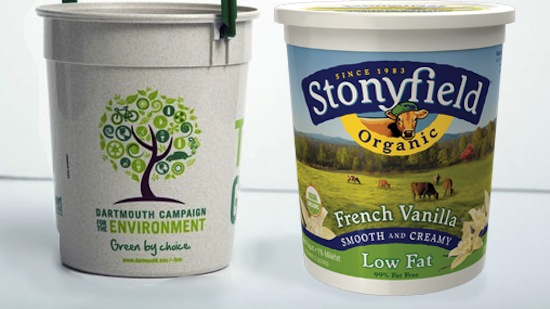We tend to associate the "everything bigger" approach with wastefulness — oversized cars guzzle gas, McMansions drive up electricity bills, 72-ounce challenge steaks never get fully eaten. So it makes sense to think that downsizing trash cans might help downsize trash. That's what they're finding at Dartmouth College, anyway, where trash cans as small as quart-size yogurt containers (that's my ineptly 'shopped comparison above) are cutting down on waste.
Almost everything can be recycled at Dartmouth, and every faculty, staff, and administrator desk gets one large no-sort recycling bin. But for your non-recyclables — mostly drink lids and certain packaging materials — you get only a weeny six-inch can. Once that's full, you have to carry it out to a disposal area.
This simple change has saved Dartmouth 200 tons of trash in the last year, and increased recycling by a third. It's not just that people's trash expands to fill the space allotted, although there's clearly an element of that (it's akin to using smaller plates when you want to eat less). Faculty and staff culture at Dartmouth has also shifted — it's now a point of pride to be able to stretch out how long it takes to fill your tiny bin.



